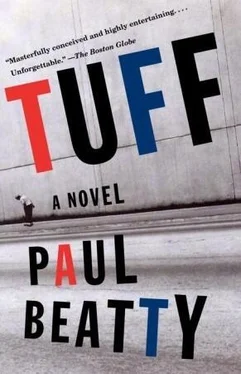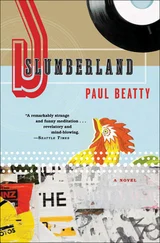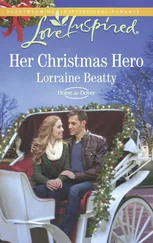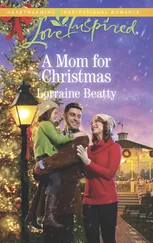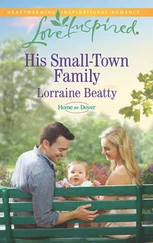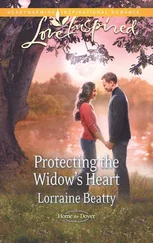“ ‘Boys’?” said the short one. The other kid stared past Spencer, eyes fixed on the Mustang’s vintage hubcaps.
“Not ‘boy’ in the pejorative sense of the word — I meant like ‘homey,’ ‘brother man,’ ‘compadre,’ ‘nigger’ even. Do you know where I can find the Foshay family?”
The young man turned to his partner and began speaking as if Spencer weren’t there. “You hear this nigger, brother man. How much you think them rims is worth?”
Feeling somewhat anxious about the future of his automobile, Spencer pulled out his Tiny Tome of Jewish Enlightenment and comforted himself with a passage from the Talmud: “God detests a man who rushes to accuse a neighbor.” Squeezing between the two boys, he entered the building.
The lobby was an atomic cyclotron: kids flocked about the hallways, black and brown molecules sliding along the linoleum, bouncing off the walls, reacting to boredom, the summer catalyst. “Anyone know Winston Foshay?” At the sound of Spencer’s voice every child froze, instantly inert. Spencer tried another tack. “Winston Foshay? Buenas tardes, muchachos. Yo buscando para el niño negro , Weeenston Foshay?” Nothing. At the end of the hallway a door opened. “In here,” said a faceless voice. The children didn’t move until the door shut tightly behind him.
Spencer didn’t receive the fanfare he’d expected. He’d prepped for his mentorship by rereading his collection of pauper literature — Steinbeck, Bukowski, Hansberry, Hurston — hoping to gain some insight into the lives of the working poor. Spencer thought he’d walk into a welcoming party atmosphere — balloons and a paper banner hanging over a representative sampling of the dignified poor. The sturdy matron would offer him a party favor, a one-candle cupcake, and, after a bosomy hug, introduce her ragamuffin bastard.
He followed the voices down the hallway and into the cramped living room. There was a chesty black woman inside but this one took one look at Spencer and muttered, “Oh, hell no,” and plopped down onto the couch, shaking her head in disgust. An obviously physically handicapped gentleman held up the magnifying glass he was using to examine some counterfeit twenty-dollar bills, and cast one enlarged eye toward the rabbi. “Tuffy, they sent you one of them alternative-hippie-goofball niggers.”
“I tried to find the apartment, but the kids in the hall wouldn’t tell me where Winston lived.”
The black behemoth in baggy jeans and tank top motioned for Spencer to sit in the lawn chair next to the bookshelf. “They probably thought you was a cop. If you’d have asked for Tuffy, they’d have told you which door to knock.”
Spencer carefully sat in the creaky chair and faced what he guessed by the stoic look on his hosts’ faces would be his tribunal. “I’m Spencer Throckmorton. You folks must be Winston’s siblings. And where is the lucky protégé?” Spencer pointed to the child, who was doing the suspect lean against the television screen, hands on the tube, legs apart, eye-to-eye with an R&B diva, shaking his diapered behind to the beat. “Surely that tyke isn’t little Winston?” he asked. No one answered him. He looked about the stuffy, windowless, stiflingly hot room, feeling, for one of the few times in his life, out of place. “This motherfucker got dreadlocks!” yelled the woman.
The big man placed his chin in his hand, “Man, I hate niggers with dreads. A coconut motherfucker, all right, but an American nigger? They too stuck-up.”
“Think they playboys.”
“But if they didn’t have dreads they’d look like plain old mailman niggers from around the way.”
“Wouldn’t be so special.”
“So fucking spiritual.”
“So fucking revolutionary.”
“So together.”
“Self-actualized.”
“Bracelet-, bangle-wearing, bitch-ass niggers.”
“Don’t even listen to reggae music.”
“Most of all you can’t trust ’em.”
“True.”
The baby stopped dancing, climbed onto Spencer’s lap, and tugged violently at one of his knotted strands of hair, dislodging the yarmulke from his head. The crippled kid dropped his magnifying glass and sounded the alarm:
“Je-e-e-w!”
Everyone looked at Spencer and waited for him to explode like a terrorist grenade rolled into the midst of a gathering of innocents. Jordy scooped up the knit cap and waddled over to his father. “What up with this?” asked Winston, flipping the yarmulke back to Spencer.
“The nigger is a Jew,” said Fariq.
“I can speak for myself,” Spencer said, popping the inside-out cap back into position. “Obviously, I’m a member of the Jewish faith. Not so evident is that I’m also a rabbi. But how does my religion bear on my ability to provide guidance to a troubled teen?”
“Teen?” Winston shouted.
“Winston Foshay.” Spencer was growing impatient, waving the referral paper in the air. “The boy I’m to be a Big Brother to.”
“I’m Winston.”
Spencer leaned forward in his chair. “Come again?”
“You heard, Jewboy, he’s Winston Foshay, your Little Brother.”
“Relax, Fariq. Look, Rabbi, I know you didn’t expect no big, three-hundred-pound-plus nigger like me, but I called the Big Brother program because my thing, my shit, is confused. I saw the commercial and I thought I needed a Big Brother, a father figure. You know, try to do something with my life.”
“ ‘I need a father figure,’ ” Fariq cackled.
“Shut up, Smush!” Yolanda scolded, flinging her hairbrush at Fariq, which he deftly knocked out of the air with his crutch.
Spencer began to see the gravity of the task he’d undertaken. Here in front of him was a young, uneducated black man over twice his size looking to forge his way in the closed society that somewhere along the way he’d decided to join.
His rabbinical duties were a cinch compared to this. You give a thirteen-year-old a phonetically transcribed script, he makes his bar mitzvah speech, counts the cash, and skips into young adulthood. Spencer wasn’t sure he wanted the responsibility of showing someone how to be responsible for himself. Jordy, still in front of the television, squatted and jabbed his hands in the air, furiously imitating the rapper in the video.
“That’s all right, Mr. Throckmorton. You can go now.” Winston was at the front door, door handle in hand. “Sorry for the inconvenience, but I’ve decided I don’t need you. It’s been almost two weeks since I called Big Brothers of America and now I’ve changed my … changed my mind about this Big Brother stuff.”
Spencer gathered his belongings and made his way to the door, seeing his Pulitzer disappear and feeling somewhat offended that a person in Winston’s position didn’t want his help. “What do you mean, you don’t need me?”
“We don’t have anything in common.”
“How do you know?”
“That was you driving up, car stereo blasting some song about Winnie-the-Pooh? Some shit about counting bees and chasing clouds?”
“Loggins and Messina, ‘The House at Pooh Corner.’ ”
Winston rubbed the back of his neck. “We from two different worlds, Rabbi. Plus, I think I’m more mature than you.”
“Excuse me?”
“Look, you might have few years on me, but compared to you, my game is trump tight. I mean, I got a wife and kid, a goldfish.”
“I thought these people were your sister and brother. You two are married? Where are the rings?”
“We ain’t got no rings because this cheap, flabby motherfucker says he don’t believe in wedding rings.”
“That’s right — wedding rings are signs of materialistic something or other.”
“I swear, sometimes I could kill Ms. Nomura,” said Yolanda, rubbing the tension from her temples. “Wasn’t much of a wedding — we got married over the phone.”
Читать дальше
